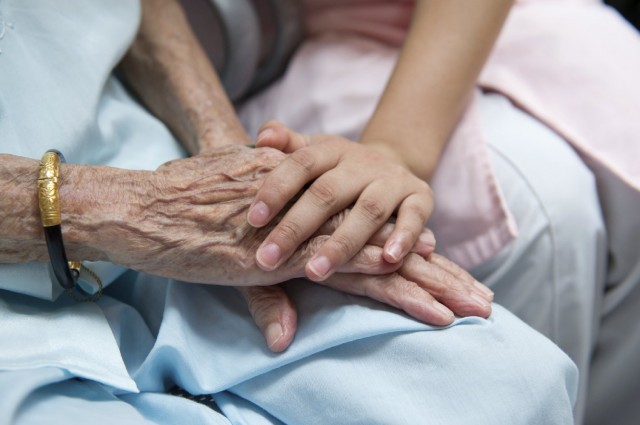KQED health reporter April Dembosky explained the goal of the program this way in her story last month:
(Cal MediConnect is) part of a national pilot project under the Affordable Care Act (ACA) aimed at helping the country’s sickest patients get better care. More than 1 million people in the state currently receive health benefits from two government programs: Medi-Cal for people who are low income and Medicare for people over 65 and the disabled. In policy circles, they’re known as the “dual eligibles.” The new project streamlines the two plans into one for this population. It also incorporates community-based services and in-home services, all under one umbrella.
Cutler said that while the process has moved along well in San Mateo County, which has few enrollees and is already set up for the changes, she is concerned about misleading letters about the transition and poor help center guidance for dual-eligibles in Riverside, San Bernardino and San Diego counties.
Cutler said that letters have gone out late in those counties, and some people who shouldn't have received them did.
In an email statement, Anthony Cava, a spokesperson for the Department of Health Care Services told State of Health, "Cal MediConnect is a tremendous opportunity to improve care and quality of life for Californians eligible for both Medi-Cal and Medicare. The current system is very fragmented for these individuals ... Cal MediConnect is designed to help fix that."
Cava said that the state had received the letter requesting a delay from advocates, but said "Because of our extensive efforts to work with stakeholders, counties, and health plans to ensure operational readiness, and as the health plans have undergone extensive readiness reviews with the Centers for Medicare & Medicaid Services, we believe that the program is ready to offer quality, coordinated health care for dual eligibles.”
Meanwhile, two researchers at the UCLA Center for Health Policy Research have just released updated results from a longitudinal study of dual-eligibles called the HOME Project.
In a webinar, research scientist Kathryn Kietzman said their study found most consumers who qualify for both Medicare and Medi-Cal are managing a complex and fragile web of services and some have unmet needs.
She added that many have developed complex relationships with providers that help them keep their care afloat. This requires everything from managing transportation to therapy appointments as well as creating a relationship with primary care physicians. These are all built up over time.
The UCLA team recommended that the state should maximize its efforts to ensure consumers are well informed and that they are also supported so that they can make educated choices in the new program.
Cutler said that's just why a delay in the program is called for.
She adds that it would also help because, with the implementation of the ACA, the state and consumers are dealing with many other changes in the health system.
"The clients’ confusion is compounded because they don’t know if the notices are coming because of 'Obamacare.' They’ve been told they’re not affected, but now they’re getting all these letters," said Cutler.
California is one of the first of nine states that are participating in the three-year federal pilot project. Seven counties are affected. San Mateo, San Diego, San Bernardino and Riverside plans will go into effect in April and May. Alameda and Los Angeles plans take effect in July, and Santa Clara will start next January.
If you believe you are affected by the new Cal MediConnect program and have questions, call 800-434-0222 to be connected to the Health Insurance Counseling and Advocacy Program in your county.
